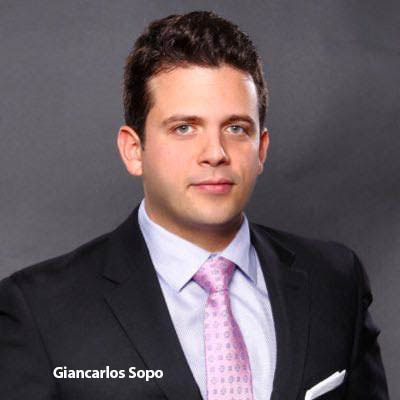Hispanic Americans face plenty of challenges as it is. The last thing we need are English-speaking progressives ‘wokesplaining’ how to speak Spanish
by Giancarlo Sopo
When Yale professor Cydney Dupree and her colleague analyzed more than two decades worth of political speeches and conducted experiments searching for bias when communicating with racial minorities, they were surprised by what they discovered. According to their report, published this year in the Journal of Personality and Social Psychology, conservatives generally addressed whites and minorities similarly, but liberals were likelier to modify their speech and “patronize minorities stereotyped as lower status and less competent.”
Dupree cautioned that although liberals might be “well-intentioned” and “see themselves as allies,” they could be unwittingly contributing to racial division by dumbing down their language. In light of minorities understandably feeling marginalized, journalists, corporations and politicians would be wise to heed the professor’s warning. Instead, they are ignoring it.
One of the most notable examples of corporate America and politicians changing how they speak to ingratiate themselves with minorities is the growing use of “Latinx” as a descriptor for Latinos. What began in the 2000s among activists has now gained currency among marketers, media personalities and progressives. The intentions behind “Latinx” may be benign, but as the son of immigrants who grew up in a community with “English-only” ordinances, I am among the many Americans who consider it an absurd Anglicization of a language that generations struggled to conserve.
Spanish doesn’t need to be changed
Progressives argue that Latinx fixes the gendered nature of Spanish, which they maintain is unfair to women and excludes individuals who do not identify as male or female. It is true that nouns are gendered in Spanish, but it is unclear what, if any, problem this poses to Americans.
English is not grammatically gendered; “Latinos” is inclusive in both languages, and substitutes like “Latin” and “Hispanic” can adequately describe the population that is Latino and nonbinary. Taken to its logical conclusion, a push for gender-neutral Spanish nouns requires dismantling a language spoken by 572 million people across the world.
In my new country, an old debate: My family escaped socialism, now my fellow Democrats think we should move the party in its direction
Yet some maintain that Spanish is insufficiently “woke.” Marketers are now targeting Latinx consumers, and Sen. Elizabeth Warren, D-Mass., marked Hispanic Heritage Month by promising in English and Spanish to champion “Latinx families.”
Thanks, but marketing executives and politicians should understand that many of our families do not want to be called Latinx. The fact that the word is controversial makes its usage especially strange, since modern social norms discourage applying loaded terms to minority groups.
As deputy editor of Latino Rebels, Hector Luis Alamo described Latinx as “the bulldozing of Spanish.”
In a column for the Los Angeles Times, a Hispanic writer noted that millennial media outlets who used it found their pages “flooded with negative reactions, with some calling the term ‘ridiculous,’ ‘stupid’ and ‘offensive.’ ”
Alejandrina Gonzalez, a Mexican-American Stanford University student, told me that millennials who view Latinx as liberating have it backwards. “Changing our language is the opposite of empowering,” she said.
Not only is Latinx “laughably incomprehensible to any Spanish speaker without some fluency in English,” as two Latino Swarthmore College students argued in 2015, its use has been formally rejected by the Real Academia Española, the official body of linguists that preserves the language’s integrity. Who knew it was progressive to abrogate foreign grammar standards?
What happened to multiculturalism?
Rather than making Latinos feel included, progressives are implying the way our families speak is fundamentally inadequate for the United States and progressive American culture. This is offensive to the 85 percent of Hispanics who, like my parents, speak Spanish to their children and whose most treasured heirlooms are often family traditions and memories in Spanish. Mine include the mellifluous sound of the baritone voice of my “abuelo,” mom’s favorite boleros and dad’s military stories.
Has their language joined the ranks of comedian Dave Chapelle, the Betsy Ross flag, and the interminable list of people and things that perturb our politically correct sensibilities?
Ultimately, what Hispanic Americans who take pride in our heritage see in “Latinx” is progressive preening attempting to solve a nonexistent problem at the expense of a beautiful language that Chicanos and other Latinos endured corporal punishment and bigotry to defend. Liberals should also realize it is impossible to reconcile their professed values — like multiculturalism, education and pronoun autonomy — with the peculiar strain of 2019 progressivism that seeks to radically change our language, disregards linguistic practices, and disavows our right to determine how we are described.
Gender-nonconforming Americans should be treated with compassion and respect. If someone wants to be called Latinx, that is fine, but the label should not be forced upon all Latinos. Hispanic Americans face plenty of challenges. The last thing we need are progressives “wokesplaining” how to speak Spanish.
Giancarlo Sopo is a public relations strategist and a 2019 National Review Institute regional fellow in Dallas. Follow him on Twitter: @GiancarloSopo



